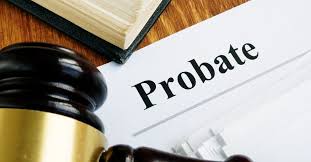
I have a Will so I won't need probate - WRONG!
Many people believe that having a Last Will & Testament means their family can skip probate. This is one of the biggest misunderstandings we see in our probate practice. The truth is simple:
If there is a Will, it must still go through probate.
Probate is the legal process the court uses to make sure a Will is real, debts are handled, and property is passed to the people named in the Will. Let’s break down why probate is still required, even when the person left a written Will.
What Probate Really Means
Probate is the legal process where a judge reviews a Will and gives someone permission to carry out its instructions; this person is called the Personal Representative or Executor.
Probate happens in the county where the person lived when they died. The court has to approve the Will before anything can be done with the estate.
A Will Does NOT Avoid Probate
A Last Will & Testament is like a set of instructions. But instructions alone are not enough. The court must officially approve those instructions before anyone can act on them. Think of it like a grocery list, just because you know what you need to buy at the store does not mean there will be dinner on the table when you get home.
If someone dies in Kansas City with a Will, the family cannot just start moving money, selling the house, or dividing property. Banks, title companies, and the county recorder will not accept a Will by itself. They need Letters of Testamentary or Letters of Administration from the probate court.
Those documents only come after the Will has been filed and accepted by a judge.
Why the Court Has to Be Involved
Even if everyone agrees with the Will, the court still needs to do a few things:
1. Confirm the Will is valid
The court checks:
Was the Will signed correctly?
Was it witnessed?
Was the person mentally able to sign it?
Is the copy submitted the original?
Without a judge’s approval, there is no legal proof that the document is valid.
2. Appoint someone to be in charge
A Will usually names who should handle the estate. But that person does not have any power until the court gives them legal authority. The court will issue Letters of Testamentary once probate is opened.
3. Protect heirs and beneficiaries
Probate makes sure the person’s wishes are followed and that no one is left out. Even when everyone gets along, the court steps in to keep things official and fair.
4. Notify creditors
Before money or property can be handed out, debts must be paid. This includes:
Medical bills
Taxes
Credit cards
Funeral expenses
Without probate, creditors can later challenge the transfer of assets.
5. Transfer title to property
In Kansas City and surrounding areas, real estate cannot transfer based on a Will alone. For example: All must pass through probate before a deed can be issued to the new owner—unless the property was set up to transfer outside of probate.
Why People Think Wills Avoid Probate
Many people were told that writing a Will “takes care of everything.” In reality, a Will only tells the court what the person wanted—it does not skip the court process itself.
To truly avoid probate, assets must be transferred using tools that pass property directly at death, such as:
Transfer-on-death deeds
Beneficiary designations
Pay-on-death accounts
Joint tenancy with right of survivorship
Revocable living trusts
If none of these are used, the Will must go through probate.
What Happens If the Will Is Not Probated?
If no one files the Will with the court:
No one can legally act on behalf of the estate
Property may stay in the deceased person’s name
Family members may not be able to sell the home
Banks will not release funds
The Will could become invalid after the legal deadline
In Missouri, a Will must generally be filed within one year of death, or it may not be enforceable. In Kansas, probate deadlines also apply, depending on the assets.
What If There Are No Probate Assets?
Sometimes a person prepares well. They may have:
Transfer-on-death titles
A trust
Joint ownership
Payable-on-death accounts
In those cases, there may be no probate estate to open. But even then, the Will is usually placed on file with the court so there is a record of the person’s intent.
Final Takeaway for Kansas City Families
If someone passes away with only a Will—no trust, no beneficiary deed, no joint ownership—probate is required. The Will is not a substitute for probate. It is the road map the court uses during probate to carry out someone’s wishes.
Legal Disclaimer
This blog post is for informational purposes only and does not create an attorney-client relationship. The information provided is general in nature and may not apply to your specific situation. For legal advice about probate in Missouri or Kansas, please contact a licensed attorney.

